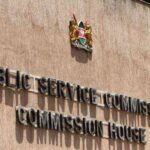Securing a government job in Kenya is a significant achievement, given the competition and the rigorous selection process. One of the most crucial stages of this process is the job interview. Government job interviews are often structured differently from those in the private sector, with a focus on assessing not just your technical skills but also your understanding of public service principles, ethical conduct, and your ability to contribute to national development. This article provides an in-depth guide on what to expect in a government job interview and how to prepare effectively.
Understanding the Structure of Government Job Interviews
Government job interviews in Kenya are typically structured and formal, with a panel of interviewers rather than a single interviewer. The panel often includes representatives from various departments, human resource professionals, and experts in the field relevant to the job. The purpose of this structure is to ensure that the candidate is thoroughly assessed from multiple perspectives.
The interview usually starts with introductions and an overview of the process. The panel may ask questions related to your background, work experience, and education before moving on to more specific questions related to the job you are applying for. It is common for the interview to include both technical questions and behavioral or situational questions designed to assess your problem-solving abilities and decision-making skills.
Key Areas of Focus in Government Job Interviews
- Knowledge of Public Service and Government Operations:
Government interviews often test your understanding of the role of public service, the functions of government departments, and your knowledge of the policies relevant to the job. For example, if you are applying for a position in the Ministry of Health, you might be asked about current health policies, challenges in the healthcare sector, and your views on improving service delivery. - Technical Competence:
Depending on the position, technical questions will assess your expertise in your field. If you are applying for an engineering role, you may be asked to solve technical problems or discuss specific projects you’ve worked on. For positions in administration or finance, you might be required to demonstrate your knowledge of government accounting practices, budget management, or procurement procedures. - Behavioral and Situational Questions:
These questions assess how you handle real-life scenarios. The panel may present hypothetical situations related to the job and ask how you would respond. For instance, you might be asked how you would handle a conflict between team members, manage a crisis, or ensure compliance with government regulations. The aim is to gauge your decision-making, leadership, and interpersonal skills. - Ethics and Integrity:
Integrity is a critical requirement in government service. Expect questions that test your ethical judgment and understanding of the code of conduct for public officers. You may be asked to describe a time when you faced an ethical dilemma and how you resolved it, or how you would handle a situation where you are asked to compromise your values. - Understanding of the Role:
The interviewers will want to know that you fully understand the responsibilities of the position you are applying for and that you are prepared to meet these challenges. Be prepared to discuss how your skills and experience align with the job description and how you plan to contribute to the department’s goals.
How to Prepare for a Government Job Interview
- Research the Role and the Department: Begin your preparation by thoroughly researching the department or ministry you are applying to. Understand its mandate, current projects, and challenges. Review the job description and match your qualifications and experience to the key requirements of the role. Knowing the department’s objectives and how your role fits into the broader government framework will demonstrate your preparedness and commitment.
- Understand the Public Service Code of Conduct: Familiarize yourself with the ethical guidelines and principles that govern public servants in Kenya. Review the Public Officer Ethics Act and other relevant legislation. Being able to discuss these principles and how they apply to your role will show that you are ready to uphold the standards expected of government employees.
- Practice Common Interview Questions: Practice answering common interview questions, especially those related to your field. Use the STAR method (Situation, Task, Action, Result) to structure your responses to behavioral questions. This approach will help you provide clear and concise answers that highlight your experience and skills.
- Prepare Your Documents: Ensure that you have all the necessary documents ready for the interview. This includes your academic certificates, professional qualifications, identification documents, and any other paperwork specified in the job advertisement. Organize these documents neatly in a folder and have copies available in case the interview panel requests them.
- Dress Appropriately: First impressions matter, and dressing appropriately for a government job interview is crucial. Opt for formal business attire, such as a suit or a conservative dress. Your appearance should reflect the professionalism expected in a government role.
- Be Punctual: Arriving on time for your interview is essential. Plan your journey in advance, considering traffic or any potential delays. Arriving early not only shows respect for the interviewers’ time but also gives you a few moments to compose yourself before the interview begins.
- Prepare Questions for the Panel: Towards the end of the interview, you may be given the opportunity to ask questions. Prepare thoughtful questions about the role, the department’s priorities, or career development opportunities within the public service. This demonstrates your interest in the position and your desire to contribute meaningfully to the government’s work.
What to Expect During the Interview
During the interview, you can expect a formal and structured process. The panel will take turns asking questions, and you should address your responses to the entire panel rather than just one person. Maintain eye contact, speak clearly, and stay calm and composed throughout the interview.
The interviewers may take notes as you speak, so do not be alarmed if they are writing while you answer questions. This is standard practice and helps them evaluate each candidate fairly. After the interview, the panel may discuss your responses and evaluate your suitability for the role based on predefined criteria.
Handling Difficult Questions
Government job interviews often include challenging questions designed to test your critical thinking and problem-solving abilities. If you encounter a difficult question, take a moment to think before responding. It’s okay to ask for clarification if you do not understand the question. Structure your answer logically, and if you don’t know the answer, it’s better to be honest than to guess or provide incorrect information.
Post-Interview Expectations
After the interview, the selection process may take some time, especially for senior positions where thorough vetting is required. You may be asked to provide additional documents or undergo further assessments, such as medical examinations or background checks. Be patient and ensure that you remain accessible for any follow-up communications.
If you are successful, you will receive a formal offer of employment, which will include details about your salary, benefits, and terms of employment. If you are not selected, it’s important to seek feedback if possible, as this can help you improve in future interviews.
Conclusion
Preparing for a government job interview in Kenya requires a combination of thorough research, understanding of public service principles, and effective communication skills. By anticipating the structure and content of the interview, organizing your documents, and practicing your responses, you can approach the interview with confidence. Remember that the interview is not just an opportunity for the government to assess you, but also a chance for you to demonstrate your commitment to public service and your readiness to contribute to the nation’s development. With the right preparation, you can increase your chances of success and secure a rewarding career in the public sector.





